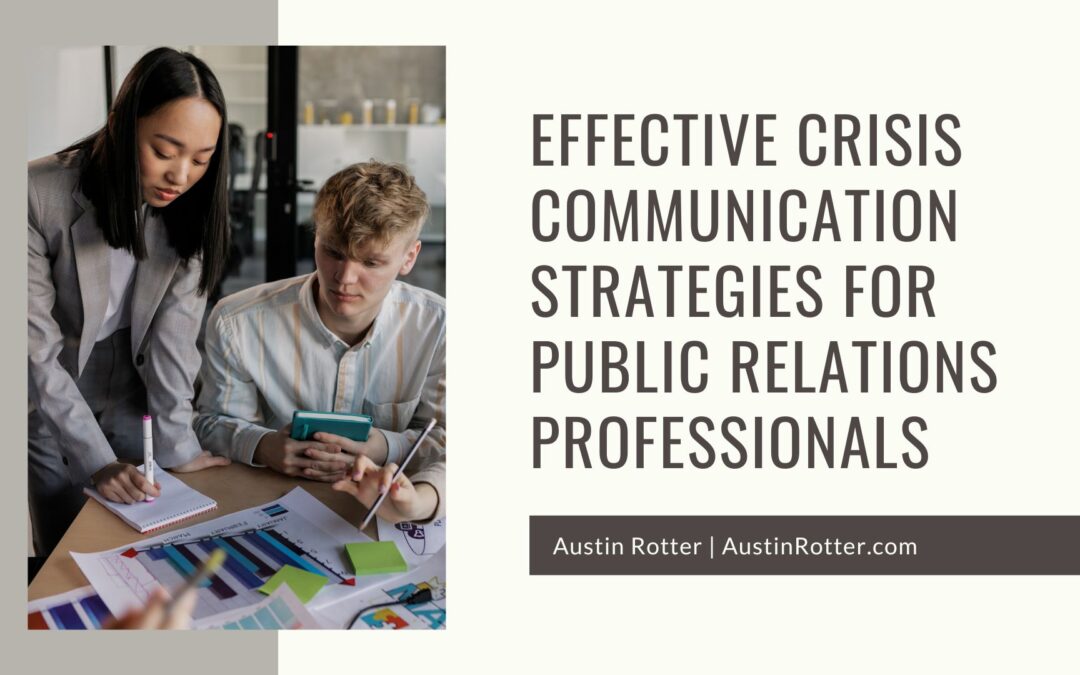In today’s fast-paced and interconnected world, crises can strike any organization, big or small, anytime. The way businesses handle these crises can make or break their reputation. Public relations professionals play a vital role in managing and mitigating the impact of a crisis. There are effective crisis communication strategies that can help PR professionals navigate through turbulent times:
Be Proactive and Prepared
The key to effective crisis communication lies in proactive planning and preparation. PR professionals should anticipate potential crises by conducting thorough risk assessments and developing crisis management protocols. This includes identifying potential vulnerabilities, establishing a crisis response team, and creating a crisis communication plan. By being prepared in advance, organizations can respond swiftly and decisively when a crisis strikes, minimizing damage and restoring trust.
Timely and Transparent Communication
During a crisis, timely and transparent communication is crucial. PR professionals should provide accurate and up-to-date information to stakeholders, including employees, customers, investors, and the media. Rapid response is essential, as delays can lead to speculation and misinformation. Being transparent builds credibility and trust, even in challenging situations. Organizations should use multiple channels, such as press releases, social media updates, and dedicated crisis hotlines, to ensure effective communication and reach a broad audience.
Empathy and Compassion
Crisis situations often evoke strong emotions among those affected. PR professionals should empathetically and compassionately approach crisis communication, demonstrating genuine concern for those impacted. Acknowledging the feelings and concerns of stakeholders helps establish a connection and foster understanding. PR professionals can guide the organization towards a more empathetic and compassionate response by actively listening to and addressing their needs.
Consistent Messaging
Consistency in messaging is critical during a crisis. PR professionals should ensure that all communication channels deliver a consistent and unified message. This includes aligning key talking points, addressing concerns, and communicating the organization’s actions and plans. Organizations can maintain control and credibility by avoiding contradictory statements or mixed signals, providing stakeholders with clarity and reassurance.
Engage with Key Stakeholders
Engaging with key stakeholders is vital during a crisis. PR professionals should actively listen to their concerns, answer questions, and provide regular updates. This involves monitoring social media platforms, promptly responding to comments and messages, and addressing public sentiment. Engaging with stakeholders demonstrates a commitment to open dialogue and builds trust. It also allows organizations to address issues proactively rather than letting them escalate.
Learn and Adapt
Every crisis presents an opportunity for organizations to learn and adapt. PR professionals should conduct post-crisis evaluations to assess the effectiveness of their communication strategies. Analyzing the strengths and weaknesses of the crisis response helps identify areas for improvement. This continuous learning approach enables organizations to refine their crisis communication strategies and better prepare for future crises.
Effective crisis communication is essential for maintaining an organization’s reputation during challenging times. By following these strategies, PR professionals can navigate crises with confidence and integrity.
